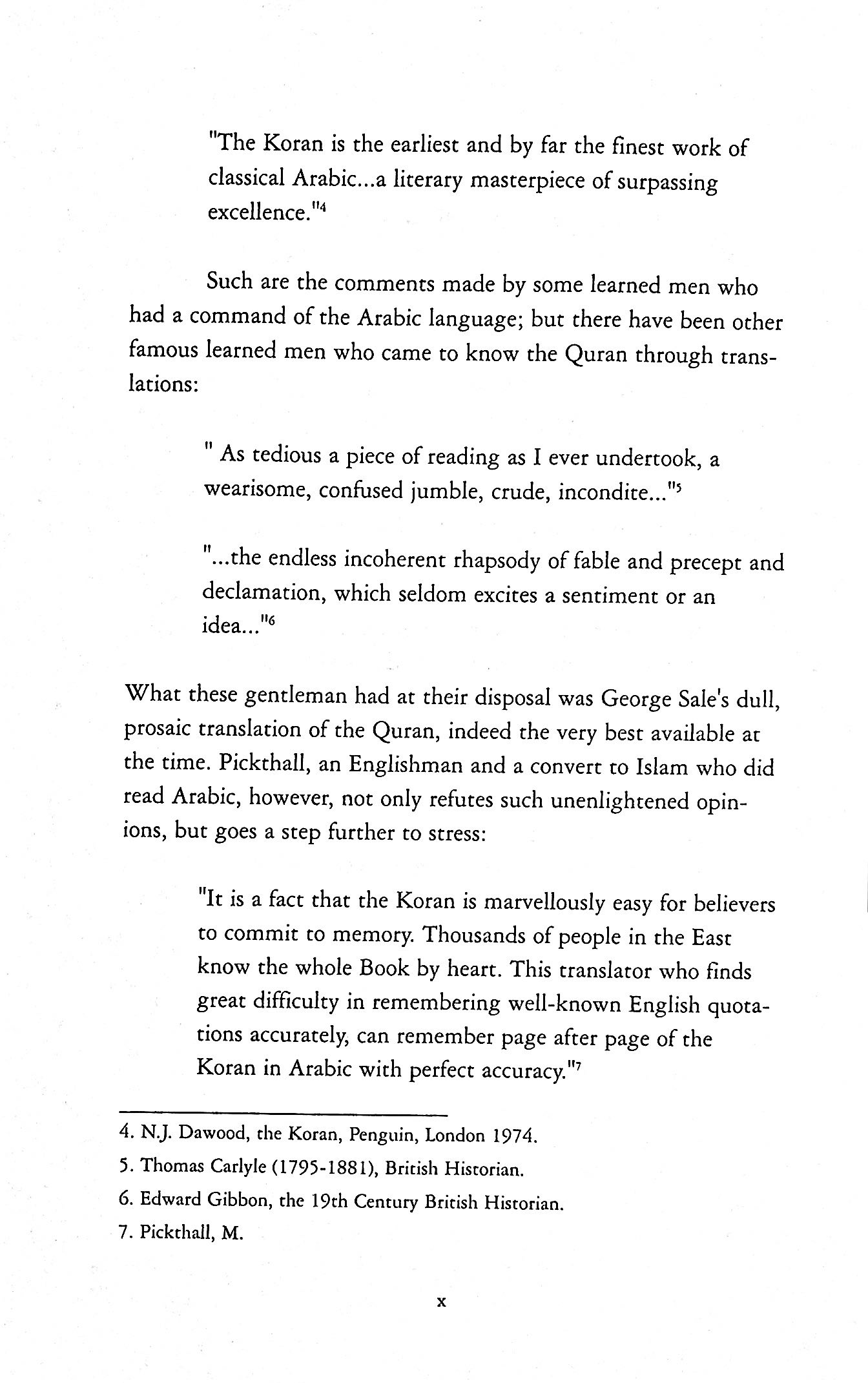Fazlollah Nikayin, The Quran; The First Poetic Translation (2000)
"The Koran is the earliest and by far the finest work of classical Arabic...a literary masterpiece of surpassing excellence."4
Such are the comments made by some learned men who had a command of the Arabic language; but there have been other famous learned men who came to know the Quran through translations:
" As tedious a piece of reading as I ever undertook, a wearisome, confused jumble, crude, incondite..."5
"...the endless incoherent rhapsody of fable and precept and declamation, which seldom excites a sentiment or an idea..."6
What these gentleman had at their disposal was George Sale's dull, prosaic translation of the Quran, indeed the very best available at the time. Pickthall, an Englishman and a convert to Islam who did read Arabic, however, not only refutes such unenlightened opinions, but goes a step further to stress:
"It is a fact that the Koran is marvellously easy for believers to commit to memory. Thousands of people in the East know the whole Book by heart. This translator who finds great difficulty in remembering well-known English quotations accurately, can remember page after page of the Koran in Arabic with perfect accuracy."7
4. N.J. Dawood, the Koran, Penguin, London 1974.
5. Thomas Carlyle (1795-1881), British Historian.
6. Edward Gibbon, the 19th Century British Historian.
7. Pickthall, M.
